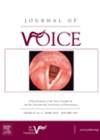
Journal Reviews
Predicting swallowing outcomes post radiotherapy for head and neck cancer
A videofluroscopic swallow study (VFSS), also known as modified barium swallow (MBS) offers a dynamic view of swallow biomechanics and associated swallowing physiology. The authors of this paper investigated whether quantitative timing and displacement measures of key structures involved in...
Modified barium swallow studies: what is the radiation risk?
A modified barium swallow study (MBSS), also called a videofluoroscopy swallowing study uses ionising radiation to assist the clinician in visualising swallowing biomechanics from the oral cavity to the oesophagus. This procedure is currently one of the best methods used...
Long-term voice outcomes following transoral laser surgery versus radiotherapy for early laryngeal cancers
The oncological outcomes of transoral laser microsurgery (TOLM) for early laryngeal cancers are well-known to be very similar to radiation therapy (RT). The functional outcomes associated with each treatment modality are therefore of significant interest. This study is reported to...
Less pain more gain: impact of prophylactic gabapentin on swallowing outcomes in head and neck cancer patients undergoing radiation treatment
Patients planned for chemoradiation to the head and neck are usually advised to expect some pain and soreness during their treatment and that pain relief will be offered as and when it is required. Uncontrolled pain and mucositis affect oral...
Radiation-induced dysphagia in head and neck cancer
This is a helpful reference paper that provides an overview of the biomolecular effects of radiation on the tissues of the upper aero-digestive tract. The authors explain that radiation injuries occur in a repetitive and accruing manner over the duration...
Voice outcomes following extended laser resections for laryngeal cancer
It is now widely accepted that the oncological and voice outcomes following transoral laser microsurgery for early T1a glottic cancers are equivalent to, if not superior to, traditional radiotherapy. Voice outcomes following more extensive resections have not been as frequently...











